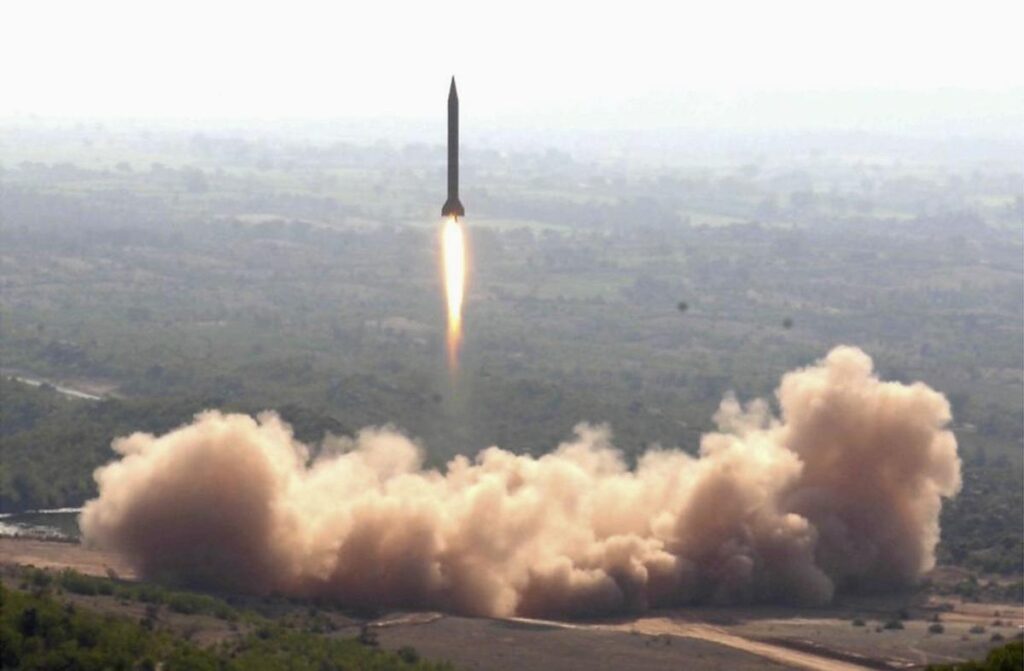US Imposes Sanctions on Pakistan’s Ballistic Missile Program for the Second Time in 2024
The United States has once again imposed sanctions on Pak. ballistic missile program, marking the second instance in 2024. This decision reflects the US’s growing concern over the proliferation of missile technologies, particularly in regions prone to instability. The sanctions, aimed at both Chinese and Pakistani entities involved in the program, come under US laws such as the Arms Export Control Act (AECA) and the Export Control Reform Act (ECRA), which target missile technology transfers in violation of international norms.
Key Entities Sanctioned
The US Department of State announced the sanctions targeting specific Chinese and Pakistani companies and individuals accused of supporting Pakistan’s missile development efforts. The Beijing Research Institute of Automation for Machine Building Industry (RIAMB) was among the key Chinese entities sanctioned. RIAMB has been previously linked to Pakistan’s National Development Complex (NDC), which the US believes plays a significant role in Pakistan’s long-range ballistic missile development. Other Chinese entities, including Hubei Huachangda Intelligent Equipment Company, Universal Enterprise Limited, and Xi’an Longde Technology Development Company Limited, were also sanctioned for their involvement.
Additionally, a Chinese national, Luo Dongmei (known as Steed Luo), and the Pakistani company Innovative Equipment, were included in the sanctions for their participation in technology transfers in violation of the Missile Technology Control Regime (MTCR) guidelines. These actions form part of a broader US effort to counter missile proliferation globally.
https://topnewssurf.com/jaishankar-india-china-border/
Historical Context
Pakistan’s ballistic missile program has long been a source of contention between Islamabad and Washington. The US has frequently raised concerns about Pakistan’s development of nuclear-capable missile systems, especially given the strained relations between Pak. and neighboring India. The missile race between these two nuclear-armed states exacerbates tensions in South Asia, a region where any escalation could have devastating consequences.
This latest round of sanctions mirrors similar measures taken earlier in 2024 when the US sanctioned several Chinese firms for their role in aiding Pakistan’s missile program. The consistent targeting of Chinese entities underscores Washington’s perception of China’s involvement in the proliferation of missile technologies to Pakistan. China, a close ally of Pak., has often been accused by Western powers of providing military and technological assistance to Islamabad, enabling it to enhance its missile and nuclear capabilities.
US Objectives and Concerns
The imposition of these sanctions reflects Washington’s broader strategic goals of preventing the spread of missile technology that could destabilize regions like South Asia. US officials argue that the proliferation of such technologies not only threatens regional stability but also poses a global security risk by increasing the likelihood of conflicts that could involve the use of nuclear weapons.
Furthermore, the sanctions are designed to send a strong message to China, which continues to support Pak’s military modernization efforts. By targeting both Chinese and Pakistani entities, the US aims to curb the flow of missile technology while also pressuring China to adhere to international non-proliferation norms.
Pakistan’s Response and Regional Implications
The Pakistani government has yet to officially respond to the latest sanctions. However, Pak. has consistently maintained that its missile program is defensive in nature and intended to deter aggression from neighboring India. In contrast, India views Pakistan’s missile development as a growing threat, further fueling an arms race between the two countries.
These sanctions could also have broader diplomatic implications for US-Pak. relations. While the two countries have cooperated in various areas, including counter-terrorism, tensions over military issues like Pak.’s missile program have frequently strained bilateral ties.

Conclusion
As the USA continues to take a hard stance on missile proliferation, the latest sanctions on Pak.’s ballistic missile program highlight the complex geopolitical dynamics of South Asia. The involvement of Chinese firms in supporting Pak.’s missile development further complicates relations between the US, China, and Pak., signaling a protracted period of diplomatic tension. By targeting these entities, the US aims to limit the growth of missile capabilities in the region and promote greater adherence to global non-proliferation standards.
This situation underscores the delicate balance of power in South Asia, where both India and Pak. continue to expand their missile and nuclear capabilities. As long as these tensions persist, efforts to stabilize the region will remain a key focus of international diplomacy.




